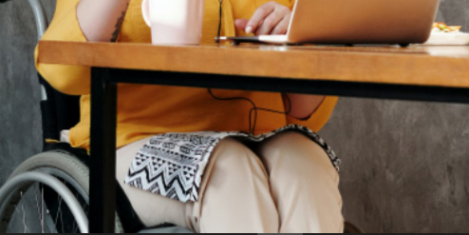To provide the best experiences, we use technologies like cookies to store and/or access device information. Consenting to these technologies will allow us to process data such as browsing behaviour or unique IDs on this site. Not consenting or withdrawing consent, may adversely affect certain features and functions.
The technical storage or access is strictly necessary for the legitimate purpose of enabling the use of a specific service explicitly requested by the subscriber or user, or for the sole purpose of carrying out the transmission of a communication over an electronic communications network.
The technical storage or access is necessary for the legitimate purpose of storing preferences that are not requested by the subscriber or user.
The technical storage or access that is used exclusively for statistical purposes.
The technical storage or access that is used exclusively for anonymous statistical purposes. Without a subpoena, voluntary compliance on the part of your Internet Service Provider, or additional records from a third party, information stored or retrieved for this purpose alone cannot usually be used to identify you.
The technical storage or access is required to create user profiles to send advertising, or to track the user on a website or across several websites for similar marketing purposes.
 RingCentral UK Ltd, has released the findings of its Connected Culture Report claiming that employees working for companies that foster a “connected culture” are twice as likely (34 percent vs. 15 percent) to be productive when working from anywhere, than those that don’t. (more…)
RingCentral UK Ltd, has released the findings of its Connected Culture Report claiming that employees working for companies that foster a “connected culture” are twice as likely (34 percent vs. 15 percent) to be productive when working from anywhere, than those that don’t. (more…)








 Three-quarters (75 percent) of business decision makers say their organisation’s environmental and social impact has become more important due to COVID-19, according to new research from
Three-quarters (75 percent) of business decision makers say their organisation’s environmental and social impact has become more important due to COVID-19, according to new research from 


 The vast majority of UK office workers neither want to continue working remotely after Covid-19 restrictions lift nor make a full return to the 9 to 5. This is despite the fact that many admit that remote work has reduced their productivity. Those are the main claims of new research released by
The vast majority of UK office workers neither want to continue working remotely after Covid-19 restrictions lift nor make a full return to the 9 to 5. This is despite the fact that many admit that remote work has reduced their productivity. Those are the main claims of new research released by 
 A vast majority of managers (75 percent) faced challenges with employees when working remotely, causing concerns within businesses preparing for the second UK lockdown.
A vast majority of managers (75 percent) faced challenges with employees when working remotely, causing concerns within businesses preparing for the second UK lockdown. 


 As COVID-19 has forced businesses to change where and how they work this year, the learning disability charity
As COVID-19 has forced businesses to change where and how they work this year, the learning disability charity 




 New research conducted on behalf of
New research conducted on behalf of 
 80 percent of companies say that an increased cybersecurity risk caused by human factors has posed a challenge during the COVID-19 pandemic, particularly in times of heightened stress. This is according to
80 percent of companies say that an increased cybersecurity risk caused by human factors has posed a challenge during the COVID-19 pandemic, particularly in times of heightened stress. This is according to 








November 11, 2020
Burnout, stress and disconnection are now our most urgent workplace mental health issues
by Catherine Flynn • Comment, Flexible working, Wellbeing